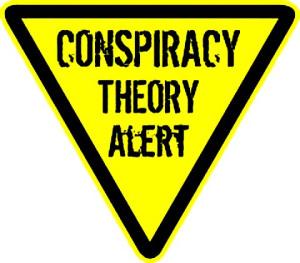
You will often hear the claim that the New Testament Gospels – Matthew, Mark, Luke and John – are not actually written by those people at all. Rather, they were written anonymously at some point late in the history of the early Church. And to give the books an air of authenticity and authority, they were given the names of central figures (like Matthew, for example) to pass them off as true. In other words – the Gospels are claimed to be forgeries.
Is this a reasonable claim?
I don’t think so. I think the New Testament Gospels were written by the people who claimed to have written them. Let’s look at some of my evidence.
MARK:
There is compelling evidence from outside of the Bible that John Mark, who we meet in Acts, penned this Gospel.
Let’s look at what some of the early Church Fathers said of this account.
- Justin Martyr (AD 150) described Mark’s Gospel as the “memoirs of Peter” (Peter was one of Jesus’ original inner circle and an Apostle). It is suggested that it was written while in Italy to encourage the Roman Christians.
- Iraneus (AD 185) referred to John Mark as the Disciple and interpreter of Peter. This is in fact the relationship that we see playing out in the Acts account (although as we read it was quite a contentious and rocky relationship at times!)
- Papias (AD 70 to AD 155) said “Mark wrote down accurately whatsoever [Peter] remembered. …he took special care not to omit anything he had heard, and not to put anything fictitious into the statements.”
And here’s a thought to ponder. If Mark’s Gospel was a forgery, why wasn’t it ascribed to Peter or one of the other Apostles? Surely if the aim was to pass it off as genuine…the scribe who falsely named the author would have chosen a top notch source. Instead – we see the author is John Mark – a well known but frankly minor character in the history of the Church.
LUKE:
Again, here we have a book claimed to be authored by an arguably minor character in church history. Luke the physician is not one of the direct eye witnesses to Jesus life and resurrection. He is a minor companion. He is certainly involved in the early Church, and we can see that from Paul’s letters (check Colossians 4:14, for example). But it would not make sense to ascribe a forgery to a minor individual.
Scholars compare the style of Luke’s writing and confirm that – just as both books claim –Lukes Gospel and the Acts of the Apostles were both written by the same person.
What we see in Luke’s writing is a mixture of eye witness reporting and direct personal testimony. For example, in Acts 16 we see a shift in the language being used. It stops talking about “they and them” and begins to use the terms “we and us”. In other words, Luke is saying…and I remember this part because I was part of this! Certainly much of the detail we read in these later chapters must have come from someone who was there and witnessed it themselves.
In summary, both Luke and Acts show evidence of early eye witness reporting and personal testimony from someone known to be in the right place and time to record both.
JOHN:
The disciple John is mentioned over 20 times by the other Gospels, and judging by some of the jealousy that went on, John was a central figure in the group of Jesus’ first disciples. But John’s Gospel never refers to the individual John directly. Instead it continually uses the term, “the disciple Jesus loved” to refer to that person. Why would the author do that? Well – perhaps he assumed that the audience he was writing to would know who he was. Perhaps he had learned some modesty in his old age?
Further – at the end of the Gospel, in chapter 21, we read “This is the disciple who testifies to these things and who wrote them down.”
MATTHEW:
Matthew, like John, was one of Jesus original inner circle. Mark and Luke might have been minor characters in the events that unfolded. But John and Matthew were not.
Going outside of the Bible again to the church fathers, Origen (AD 185 to 254) says
“Among the four Gospels, which are the only indisputable ones in the Church of God under heaven, I have learned the tradition that the first was written by Matthew, who was once a publican, but afterwards an Apostle of Jesus Christ, and it was prepared for the converts from Judaism.”
I’ve briefly laid out some of the internal and external evidence supporting the authorship of the New Testament Gospels. But really I think the question comes down to this. Who are you going to believe? Are you going to believe the conspiracy theorists? Or are you going to trust the testimony of the early leaders of the Church who lived a few decades after the Gospels were written?
I for one – am going to trust the early church leaders. Surely that makes sense?


